Oskar Kuhn was a German palaeontologist.

The Federal Ministry of Food and Agriculture, abbreviated BMEL, is a cabinet-level ministry of the Federal Republic of Germany. Its primary headquarters are located in Bonn with a secondary office in Berlin. From 1949 to 2001 it was known as the Ministry for Food, Agriculture and Forests. Through an organizational order by the German Chancellor on 22 January 2001, it became the Federal Ministry for Consumer Protection, Food and Agriculture after the Consumer protection function was transferred from the Federal Ministry for Health. The name Federal Ministry for Food, Agriculture and Consumer Protection was adopted on 22 November 2005 simply to alphabetize its functional parts in the German language. Due to the political restructurings of the 18th German Bundestag in December 2013 the division "Consumer Protection" was transferred to the Federal Ministry of Justice and Consumer Protection.
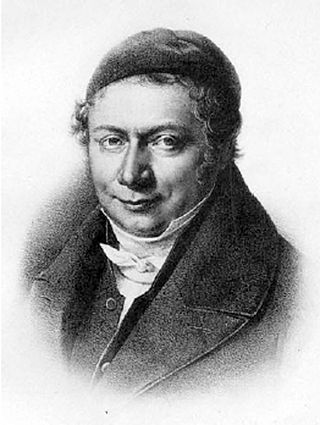
Christian Ludwig Nitzsch was a German zoologist. He is best remembered for his approach to classifying birds on the basis of their feather tract distributions or pterylosis of their young.
Walter Ehrlich was a German philosopher.
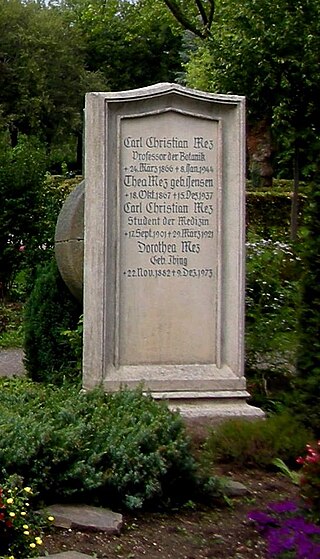
Carl Christian Mez was a German botanist and university professor. He is denoted by the author abbreviation Mez when citing a botanical name.

Curt Lahs was a German painter and arts professor.
Friedrich Wilhelm Felix von Bärensprung, sometimes Baerensprung, often shortened to Felix von Bärensprung was a German dermatologist and entomologist, known for his research into tinea cruris, herpes zoster and syphilis.

Günter de Bruyn was a German author.
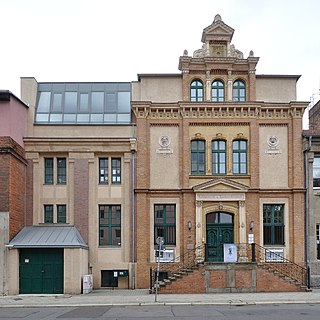
A Kunstgewerbeschule was a type of vocational arts school that existed in German-speaking countries from the mid-19th century. The term Werkkunstschule was also used for these schools. From the 1920s and after World War II, most of them either merged into universities or closed, although some continued until the 1970s.
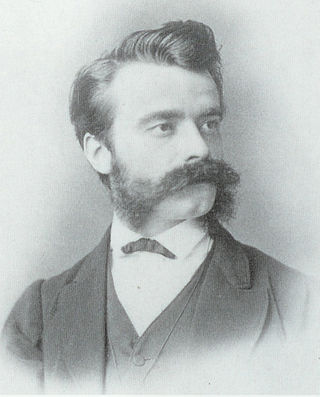
Robert Hartig was a German forestry scientist and mycologist. He has been called the father of forest pathology.
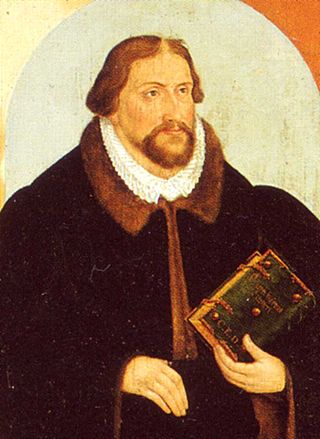
Kaspar Eberhard was a German Lutheran theologian and teacher. He was born at Schneeberg, and died at Wittenberg.
Adam Maurizio was a Swiss botanist, specialist of food technology and cultural history, born 26 September 1862 in Kraków and died 4 March 1941 in Liebefeld near Bern. He gained international recognition for his works on the history of plant food.
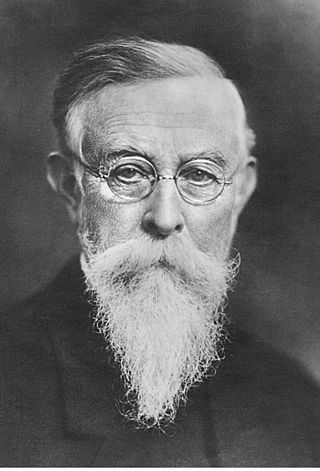
Carl or Karl von Tubeuf FLS HFRSE was a German forestry scientist, mycologist and plant pathologist. He introduced both the term biological control and the use of a biological control to manage a plant disease. He published one of the first books on plant diseases In addition to foundational work in plant pathology, he published broadly on other topics including forest botany, dendrology, mycology, and zoology. He discovered new species of gall mites of conifers.
Wolfgang Ruf is a German musicologist and emeritus professor.

Otto Brusatti is an Austrian radio personality and musicologist. He has also made a name for himself as an author, director and exhibition organizer.
Konstanze Musketa is a German musicologist and head of the Library of the Handel House Foundation.
Kurt Johnen was a German pianist, music educator and musicologist.
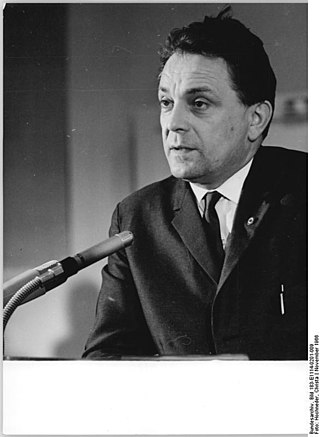
Max Walter Schulz was an East German author and part of that country's literary establishment.

Dietrich Ritter Kralik von Meyrswalden was an Austrian philologist who specialized in Germanic studies.
Wolfgang Hütt was a German art historian.












